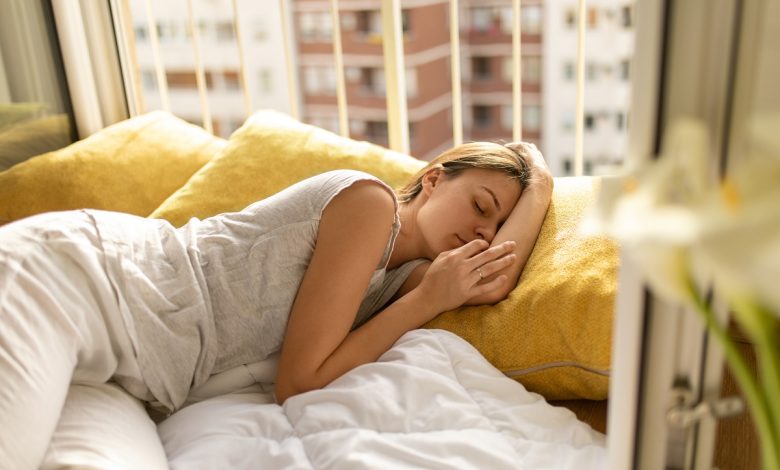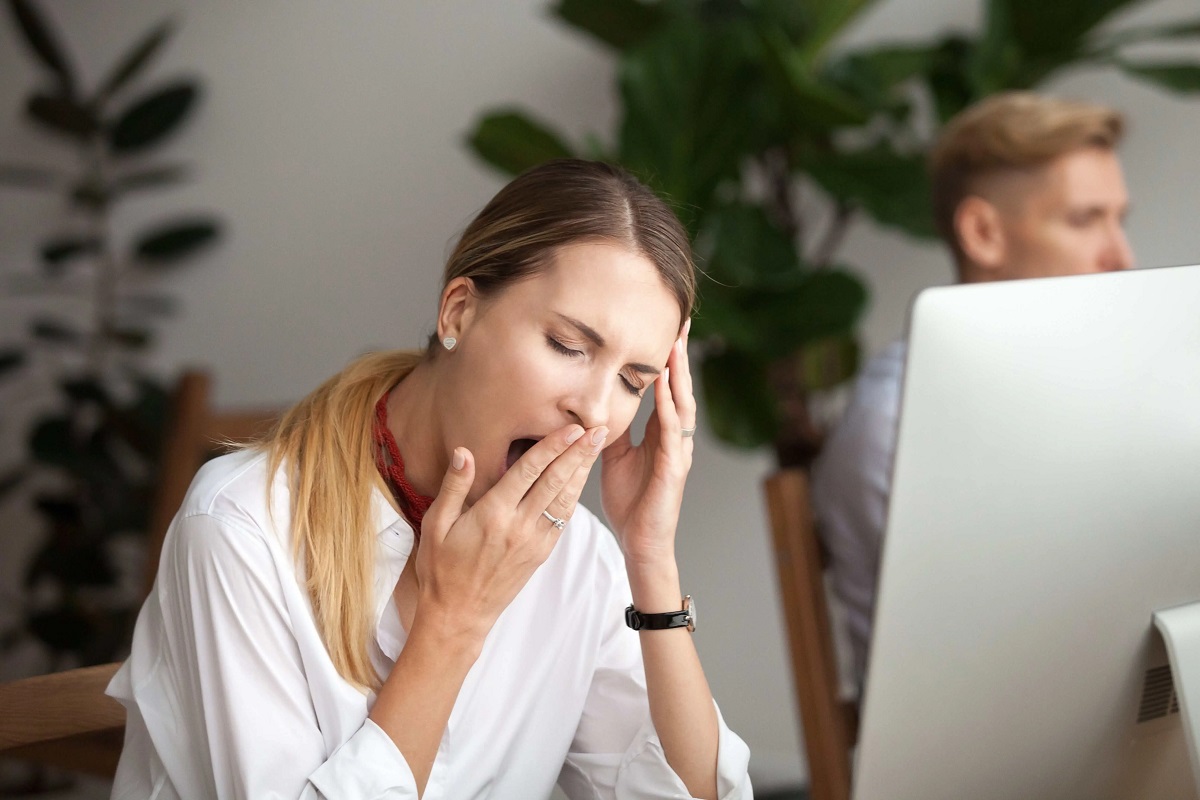6 Causes Of Daytime Sleepiness In Adult: Why Am I Sleepy Even After A Full Night’s Sleep?

Causes Of Daytime Sleepiness: It’s not uncommon to hear people express frustration over feeling persistently tired, even after getting what seems like a full night’s sleep.
Causes Of Daytime Sleepiness, This phenomenon can be baffling, as one might assume that sufficient sleep should leave them refreshed and energized. However, the experience of waking up groggy or feeling tired throughout the day can be linked to various health, lifestyle, and environmental factors. Understanding these reasons is key to addressing the issue effectively.
Causes Of Daytime Sleepiness In Adult
1. The Quality Of Sleep Matters

Causes Of Daytime Sleepiness, While the quantity of sleep is important, the quality is even more critical for how well-rested one feels. Sleep consists of different stages, including light sleep, deep sleep, and REM (rapid eye movement) sleep. These stages must be cycled through properly for restorative rest. Disruptions in sleep, even if brief, can prevent the body from spending sufficient time in the deeper stages of sleep.
Research Insights: According to the National Institute of Neurological Disorders and Stroke, adequate time in REM and deep sleep stages is crucial for physical and mental restoration. Even minor disturbances can hinder these stages, leading to daytime fatigue (National Institute of Neurological Disorders and Stroke, 2023).
2. Sleep Disorders And Their Impact
Causes Of Daytime Sleepiness, Chronic sleepiness despite adequate nighttime sleep can be attributed to undiagnosed sleep disorders. The most common include:
Sleep Apnea: A condition where breathing temporarily stops during sleep, often due to airway blockages. These pauses can lead to brief wake-ups that the individual might not remember, disrupting the sleep cycle and reducing sleep quality.
Restless Legs Syndrome (RLS): An uncontrollable urge to move the legs, often accompanied by uncomfortable sensations, which can interfere with falling and staying asleep.
Narcolepsy: Although rare, this condition involves sudden sleepiness during the day and fragmented nighttime sleep.
Research Insight: A review in The American Journal of Respiratory and Critical Care Medicine highlighted that untreated sleep apnea is a leading cause of non-restorative sleep, impacting millions globally.
3. Poor Sleep Hygiene And Lifestyle Choices
Causes Of Daytime Sleepiness, Sleep hygiene refers to habits and practices that facilitate quality sleep. Poor sleep hygiene includes inconsistent sleep schedules, using electronic devices before bedtime, and consuming caffeine or alcohol close to bedtime. These habits can lead to superficial sleep and cause one to wake up feeling unrefreshed.
Practical Tips: The National Sleep Foundation (2023) recommends keeping a consistent sleep schedule, avoiding screens at least an hour before bedtime, and creating a comfortable sleep environment as key strategies for improving sleep quality.
4. Underlying Medical Conditions

Causes Of Daytime Sleepiness, Several medical conditions can contribute to persistent tiredness, even with adequate sleep. These include:
Thyroid Issues: Hypothyroidism, a condition where the thyroid gland is underactive, can cause chronic fatigue by slowing metabolism.
Anemia: Low levels of iron in the blood can lead to reduced oxygen flow to the body’s tissues, causing tiredness.
Chronic Fatigue Syndrome (CFS): A complex disorder characterized by extreme fatigue that isn’t improved by rest.
Research Insight: The Mayo Clinic suggests that diagnosing these conditions often involves blood tests and clinical assessments to identify contributing factors to fatigue.
5. Mental Health Factors
Causes Of Daytime Sleepiness, Emotional well-being plays a significant role in how refreshed one feels. Anxiety and depression can contribute to sleep problems like insomnia or fragmented sleep. Even when sleep isn’t directly disturbed, people with mental health challenges may feel more fatigued due to the body’s chronic stress response.
Research Insight: According to the Journal of Psychiatric Research, individuals with depression often report feeling fatigued despite a full night of sleep. This may be due to altered sleep cycles and elevated stress hormone levels impacting sleep quality.
6. Nutrition And Hydration
Causes Of Daytime Sleepiness, Poor dietary habits and dehydration can also contribute to feeling tired despite adequate sleep. A diet high in processed sugars and low in essential vitamins and minerals can lead to fluctuations in energy levels throughout the day. Additionally, not drinking enough water can cause fatigue since hydration affects cell function and energy production.
Practical Advice: Harvard T.H. Chan School of Public Health suggests incorporating a balanced diet with whole foods, lean proteins, and leafy greens, alongside maintaining adequate hydration to sustain energy levels.
Also Read:
Sweets And Cavities: How Do Sweets Affect Your Teeth?
Vaccination Importance: A Critical Tool In Public Health
Atherosclerosis Leg Symptoms: Six Signs In The Legs That Indicate High Cholesterol
Loss Of Smell Effects: Loss Of Smell Could Affect Respiratory Rhythms




